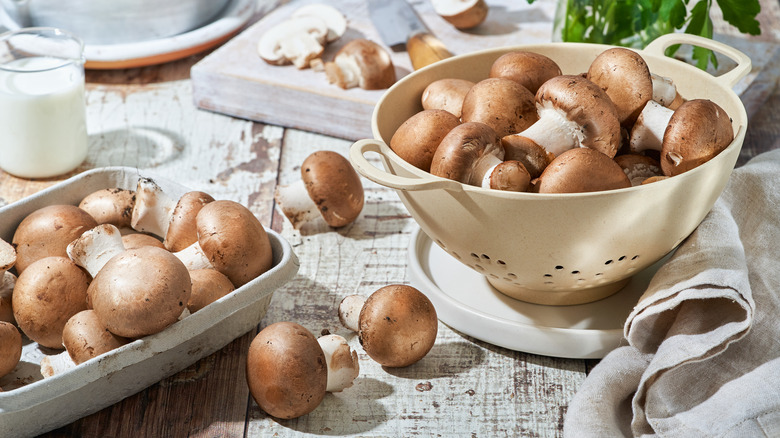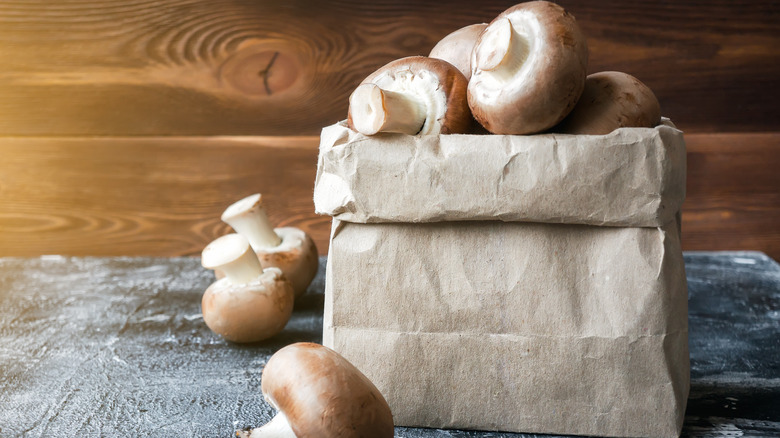Here's Why You Shouldn't Store Mushrooms In A Plastic Bag
You may have heard that it's best to store lettuce wrapped in paper towels, or that asparagus stays fresh longer when you keep it in a jar of water. But what about mushrooms? The most convenient way is to keep it in the plastic wrapped container it came in, but this often results in the product spoiling more quickly. The reason for this, according to Culinary Lore, is that mushrooms hold a lot of moisture and can react negatively to humidity.
Most vegetables contain about 70% water, but mushrooms are fungi and contain a whopping 90%. When this water has nowhere else to go, such as when the mushrooms are in a sealed container or plastic bag, it will simply collect and cause the humidity within the container to rise. Mushrooms unfortunately don't do well in humidity, and as a result, they'll begin to go bad a lot faster than normal. This will manifest itself in discoloration and changes in texture.
How should you store mushrooms?
Because mushrooms contain so much moisture, they need to be stored in a breathable environment — poking holes in the top of the plastic wrap doesn't count, as Culinary Lore points out. Instead, transfer the mushrooms in a paper bag, and simply fold it closed (via Leite's Culinaria). Because paper is neither airtight nor absorbent, the moisture from the mushrooms won't get trapped in, and any excess will be soaked up by the paper.
If you don't have an extra paper bag on hand, you could also line a Ziploc bag with paper towels. If you're using the Ziploc method, it's important to leave the bag unzipped, otherwise this defeats the purpose of aerating the mushrooms while absorbing the excess moisture. As for where in the kitchen to store mushrooms, The Spruce Eats says the refrigerator will always be the best option. Avoiding putting the mushrooms in the crisper drawer as it gets too humid, and instead place them on the main shelf.

